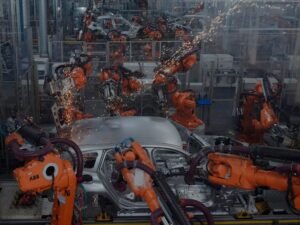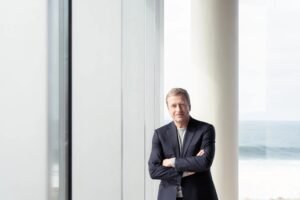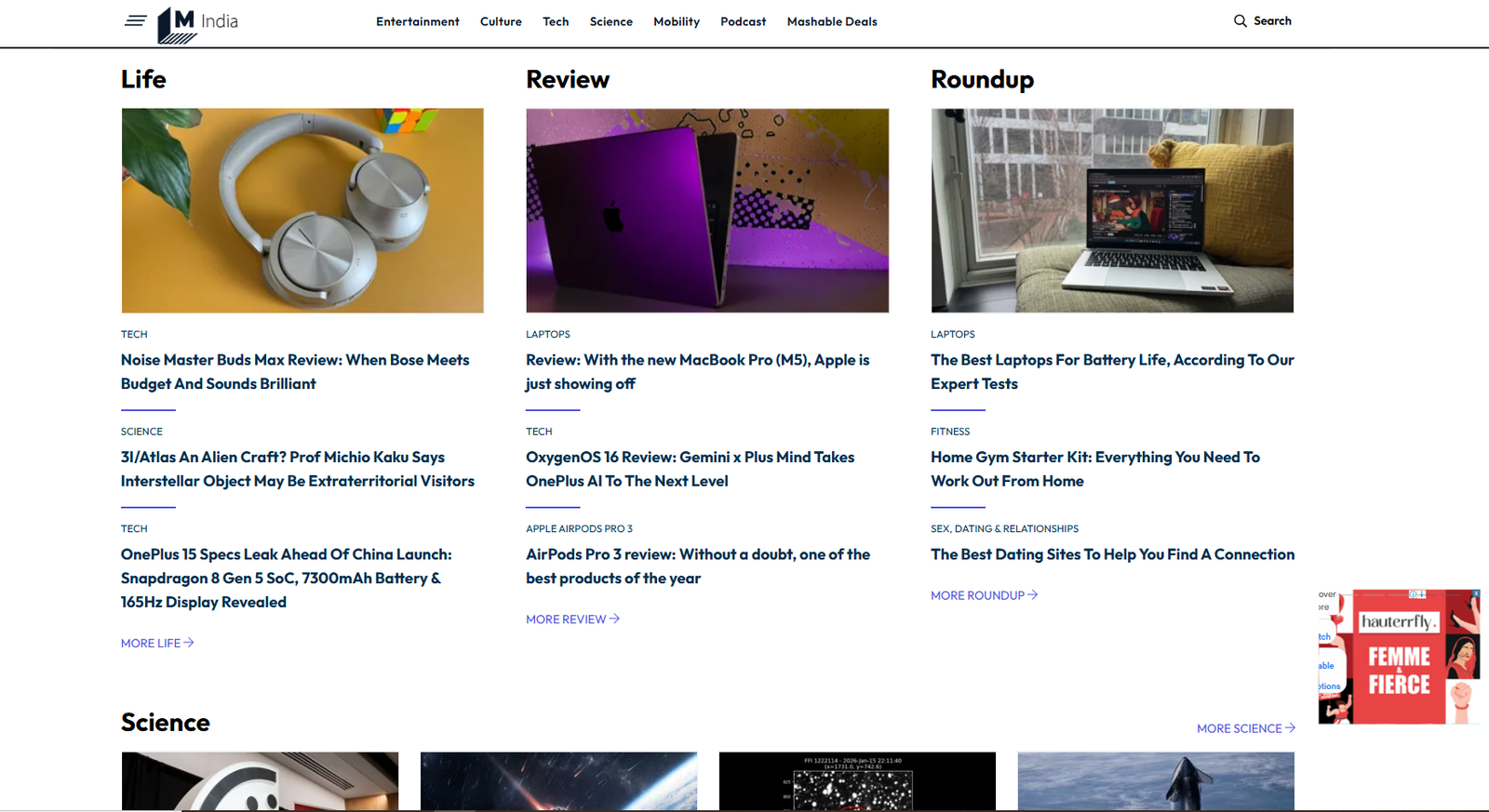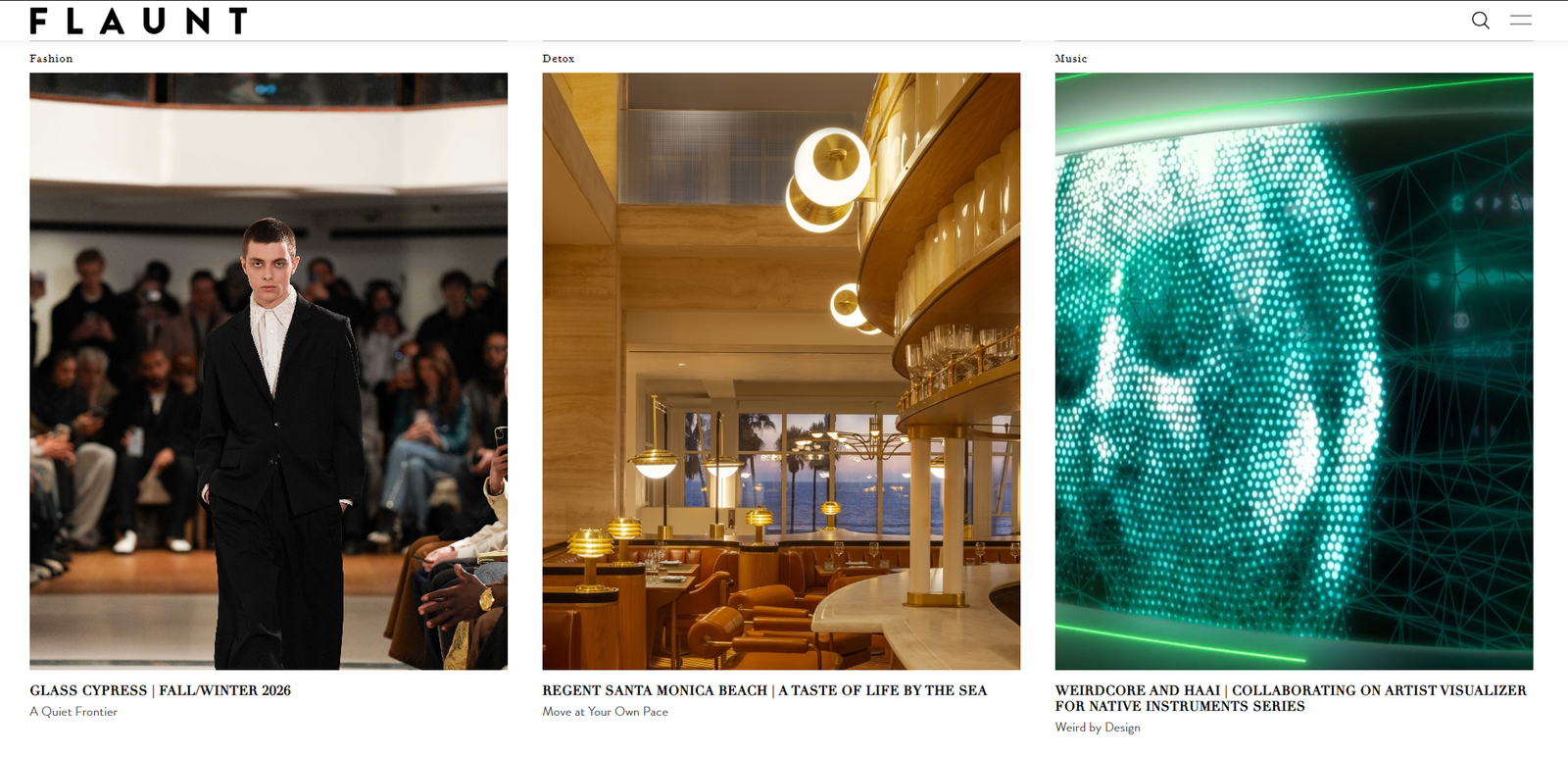Business
Charging Ahead: BMW’s Electric Revolution Takes the Automotive World by Storm
Published
2 years agoon

It was difficult to determine if BMW automobiles in Munich would be powered by fuel-burning engines, batteries, or both as the car bodywork moved smoothly down an assembly line, splattered with sparks from robotic welders. Many analysts believe that to be a bad thing.
The German automaker’s electric cars share an exterior design with its gasoline-powered counterparts, and they are produced on the same assembly line. In an attempt to compete with Tesla and the up-and-coming Chinese automakers who make cars exclusively for battery power, some established automakers have adopted an awkward and inefficient compromise strategy that involves using the same basic body for gasoline, diesel, hybrid, and electric vehicles.
Confusing the analysts, however, BMW’s approach has proven effective. The business sold 376,000 electric cars last year, up 75% from the year before, some of which were sold under the Mini brand. With 1.8 million vehicles, Tesla continued to lead the premium market, with BMW coming in second. BMW sold 15% more electric cars in 2023 than they did the year before, up from 9%.
The company’s expansion coincides with a slower global increase in the overall sales of electric automobiles. Even more astonishing is the fact that BMW turned a profit on its electric car sales, something that neither General Motors nor Ford Motor did.
Based on BMW’s experience, it appears that there is hope for some established automakers, at least, as Chinese automakers, such as BYD, begin to sell their vehicles to Europe, Latin America, and other Asian countries. The popularity of BMW vehicles indicates that many consumers value the reputation and craftsmanship of established automakers and are leery of newcomer companies as electric vehicles become more widely used.
If so, other automakers who have been producing cars for decades but have not made much progress in switching to battery-powered vehicles may find inspiration in BMW’s strategy.
BMW’s approach gave the business more time to become an expert in battery technology and create a range of electric vehicles. The Munich-based company has found it easier to adjust the manufacturing of various car models, which has helped them deal with variations in demand.
Additionally, the strategy helps BMW hold onto customers who are intrigued by electric propulsion but aren’t yet ready to make a radical departure from the norm. The business claims that customers should have the same ease selecting a car’s propulsion system as selecting its color, hence it offers hybrid versions of several of its most popular models.
If you told our regular clients, “You are a part of the old world,” we would lose them. In an interview, BMW CEO Oliver Zipse referred to those who continued to choose cars with internal combustion engines. “They would quit right away.”
BMW is going to start offering a new range of battery-only automobiles next year. Prototypes of a sedan and a crossover sport-utility vehicle are part of what the business calls the

Laetitia Vancon for The New York Times
Image
Neue Klasse or New Class was displayed by Mr. Zipse last month at an event held at a location overlooking a rocky, wave-battered stretch of coastline north of Lisbon.
Compared to current versions, these vehicles will have substantial enhancements, such as batteries that hold 20% more energy per pound and non-Tesla features like a digital display that extends to the bottom border of the windshield.
Customizable, the display replaces the instrument cluster in front of the steering wheel and provides drivers with information regarding speed, range, weather, and navigation without requiring them to take their eyes off the road. Maps and other information must be viewed from the side of the dashboard because the majority of Teslas only have one huge display in the middle. Many of the car’s controls are also located on that screen.
Furthermore, autonomous driving technology—which enables drivers to change lanes and take their hands off the wheel on freeways—will be available for the new BMWs. All it takes is a glance in the side mirror to accomplish this. This function poses a direct threat to Tesla’s lauded autonomous driving technology.
Which automakers will dominate the market has been up for debate ever since Tesla demonstrated in the last ten years that electric cars could be both fun and useful. With its roots in Silicon Valley, Tesla has led the way in battery and software technologies but has had difficulty with production and new model introduction. The well-known automakers had a challenging learning curve when it came to software and batteries, despite their decades of manufacturing experience.
Because of its strong brand, engineering know-how, and profit margins that have enabled the company to invest in new technology, BMW is likely to weather this difficult transition to electric vehicles, according to Matthew Fine, a portfolio manager at Third Avenue Management, an investment firm that owns BMW shares.
Mr. Fine stated, “We felt that would give them a very good fighting chance.” “And thus far, it appears to have been true.”
With certain benefits, the luxury automaker led the way in the transition to electric vehicles. For the second consecutive year, the brand was ranked highest among automakers of the greatest vehicles by Consumer Reports. Out of 34 brands, Tesla came in at number 18.
However, Tesla offers a lot of benefits. The Environmental Protection Agency reports that a Tesla Model S, which starts at $75,000, can travel over 400 miles on a single charge, whereas a BMW i7, which starts at well over $100,000, can only go approximately 320 miles.

Ana Brigida for The New York Times
Image
According to BMW, the upcoming generation of cars could do more than makeup for this shortfall thanks to smaller batteries that offer a 30% increase in range.
Tesla may be susceptible in some ways. Since reaching its peak in 2021, Elon Musk’s company’s shares have lost more than half of their value. The value of BMW shares has increased by almost 17% throughout that time. Tesla is still valued by Wall Street at a premium of over eight times BMW’s stock market value.
Tesla’s lineup is becoming outdated in terms of automobiles. Although the business hasn’t released a fully revamped sedan or SUV since 2020, it did start selling an enhanced Model 3 in the US recently. Limited quantities of Tesla’s newest model, the Cybertruck, were produced and sold last year.
Without addressing Tesla, Mr. Zipse remarked, “If they’re not careful, newcomers might get old before they grow up.”
An experience in the electric version of BMW’s flagship sedan, the i7, which is well-liked by politicians and business leaders, provides insight into the creature amenities that are essential to the brand’s appeal. Even when traveling at high speeds, the car is remarkably silent, sharing virtually no external differences with its internal combustion equivalent. A sizable video screen that folds down from the ceiling is included with the vehicle.
BMW, according to Mr. Zipse, is more than just a carmaker. “Yes, BMW is a car company,” he affirmed. However, he went on, “To put it simply, it’s a technology company that can combine a wide range of technologies into one product.”
BMW is demolishing facilities in Munich that housed internal combustion engine production to create room for the assembly lines that will assemble Neue Klasse automobiles. Last year, the last V-8 was taken off the assembly line.
The majority of the batteries that BMW purchases are from Chinese companies like CATL, which also supplies Tesla but produces its technology. BMW runs a mini-factory in the Parsdorf area of Munich, with walls made of corrugated metal that are blue and gray, where it tests new battery designs and manufacturing techniques.
One modification is to permit continuous mixing of a slurry including lithium and other active chemicals instead of batch mixing, which is now the standard procedure. It is a less expensive and speedier process. While it will still make models with internal combustion engines at other facilities, BMW will only create electric vehicles in Munich as of 2027. Large plants for the corporation are located in Spartanburg, South Carolina; Shenyang, China; and various sites in Europe. BMW has stated that before the end of the decade, it will start producing electric cars in the US.
Environmental organizations have criticized Mr. Zipse for not putting an expiration date on internal combustion engines, unlike Audi and other Rivals.
According to an email from Benjamin Stephan, a transportation specialist at Greenpeace in Germany, “BMW could lead the European auto industry in the electric vehicle transition if it would make a clear commitment to ending production of internal combustion engines that damage the climate.”
The future of the sector, according to Mr. Zipse, is undoubtedly electric. He pointed out that sales of BMWs with engines have stabilized. According to Mr. Zipse, “the fastest growing segment is electromobility.” He went on to say that electric cars “will be a dominant market force.”
Sahil Sachdeva is the CEO of Level Up Holdings, a Personal Branding agency. He creates elite personal brands through social media growth and top tier press features.

You may like
Business
Get Published in Hollywood Reporter: A Complete Guide for Creators and Brands
Published
4 hours agoon
February 3, 2026
If you’re aiming to Get Published In Hollywood Reporter, you’re targeting one of the most respected and influential entertainment media outlets in the world. From film and television to music, business, and culture, The Hollywood Reporter (THR) shapes industry conversations and boosts the credibility of the people and projects it features. Whether you’re an artist, producer, entrepreneur, or publicist, this guide will walk you through proven strategies to increase your chances of being featured.
Why The Hollywood Reporter Matters
The Hollywood Reporter isn’t just another entertainment publication—it’s a trusted industry authority. A feature here can:
-
Elevate your professional reputation
-
Increase media visibility and brand recognition
-
Attract investors, collaborators, and fans
-
Strengthen your personal or business credibility
Being featured signals that your work is relevant, newsworthy, and worthy of industry attention.
Understanding What THR Looks For
Before pitching, it’s essential to understand what editors and journalists at THR prioritize.
1. Industry Impact
Stories that influence or reflect change in the entertainment industry perform best. This could include major releases, business deals, innovative projects, or trend-setting initiatives.
2. Timeliness
Breaking news, upcoming launches, festivals, premieres, and exclusive announcements are more likely to gain traction than evergreen content.
3. Authority and Credibility
Journalists prefer sources with proven experience, achievements, or authority in their field. Awards, partnerships, and notable collaborations add weight to your pitch.
How to Get Published in Hollywood Reporter Successfully
Achieving coverage in a high-profile outlet requires strategy, preparation, and persistence. Here’s how to approach it professionally.
1. Develop a Compelling Story Angle
Editors aren’t interested in promotional content—they want stories that inform, inspire, or reveal something new. Ask yourself:
-
What makes my story unique?
-
How does it impact the entertainment industry?
-
Why is it relevant right now?
Your angle should focus on value to readers, not self-promotion.
2. Research the Right Journalists
Instead of sending a generic pitch to the publication, identify specific writers who cover your niche. Look for journalists who focus on:
-
Film and TV production
-
Music and entertainment business
-
Streaming platforms and digital media
-
Celebrity profiles and industry trends
Read their recent articles to understand their tone, interests, and preferred story formats.
3. Craft a Professional Pitch Email
Your pitch should be concise, personalized, and compelling. Include:
-
A strong subject line
-
A brief introduction
-
A clear and newsworthy story angle
-
Supporting facts, achievements, or data
-
Your availability for interviews or exclusives
Avoid attaching long press releases in your first email—journalists prefer quick, scannable pitches.
4. Offer Exclusive or First-Access Content
Exclusivity significantly increases your chances of being featured. Offering first access to a major announcement, interview, or behind-the-scenes insight makes your pitch more valuable.
Examples include:
-
First look at a new film or series
-
Exclusive interview with a rising talent
-
Early access to industry data or reports
5. Build Media Relationships Long-Term
One pitch rarely leads to immediate success. Consistently engage with journalists by:
-
Sharing relevant industry insights
-
Congratulating them on recent work
-
Offering expert commentary when appropriate
Over time, these relationships increase trust and improve your chances of future coverage.
Common Mistakes to Avoid
Even strong stories can fail due to avoidable errors. Watch out for these pitfalls:
Sending Generic, Mass Emails
Journalists can spot templated pitches instantly. Personalization is essential.
Being Overly Promotional
Focus on storytelling, not selling. Editorial coverage is not advertising.
Ignoring Publication Guidelines
Some journalists prefer specific formats or pitch styles. Respecting their process improves your success rate.
Following Up Too Aggressively
One polite follow-up is appropriate. Repeated emails can harm your reputation.
What Types of Stories Work Best?
To get published in Hollywood Reporter, your story should align with the publication’s editorial focus. Successful topics include:
-
Film and television projects
-
Entertainment business and mergers
-
Celebrity profiles and interviews
-
Streaming platform developments
-
Diversity, inclusion, and cultural impact stories
-
Music, awards, and festival coverage
If your story fits within these areas and offers something new, you’re on the right track.
The Role of Professional PR Support
Navigating high-level media outlets can be complex, especially without industry connections. Working with an experienced PR agency can:
-
Identify the right journalists for your story
-
Refine your messaging and positioning
-
Secure media opportunities faster
-
Manage follow-ups professionally
-
Increase long-term brand visibility
PR professionals understand editorial standards and have established media relationships that improve your chances of success.
How Long Does It Take to Get Featured?
There’s no fixed timeline. Some features happen within days of pitching, while others take weeks or months. Factors that influence timing include:
-
Newsworthiness of your story
-
Editorial calendar and deadlines
-
Journalist availability
-
Competing industry news
Patience, consistency, and persistence are key.
Final Thoughts
If your goal is to get published in Hollywood Reporter, success starts with a strong story, a clear strategy, and professional outreach. Focus on delivering value to readers, building genuine media relationships, and positioning yourself as a credible industry voice. With the right approach—and possibly the right PR support—you can earn a feature that elevates your career or brand to the next level.
Business
How to Get Published in Mashable by Leveraging Your Unique Expertise
Published
6 hours agoon
February 3, 2026
In the ever-evolving digital landscape, get published in Mashable can significantly boost your credibility, reach, and personal brand. Mashable is known for featuring trending topics, tech innovations, social media insights, and thought leadership pieces. However, breaking into such a high-profile publication requires more than just writing skill—it demands strategy, unique expertise, and an understanding of the platform’s audience. This blog will guide you step-by-step on how to get published in Mashable by leveraging what makes you stand out.
Understanding Why You Want to Get Published in Mashable
Before diving into the process, it’s important to understand why securing a spot on Mashable matters. Mashable attracts millions of readers who are tech-savvy, trend-focused, and looking for insightful content. Being published here not only validates your expertise but also positions you as a thought leader in your industry.
Moreover, contributing to Mashable can drive traffic to your own website, increase your social media following, and open doors for networking with other industry influencers. But remember: not every writer can get published in Mashable just by submitting articles. You need a strategic approach.
Identify Your Unique Expertise to Get Published in Mashable
The first step to get published in Mashable is identifying your unique expertise. What knowledge, experience, or perspective do you bring that others don’t? Mashable values fresh, authentic, and specialized insights.
Ask yourself questions like:
-
What niche do I truly understand?
-
Can I share data-backed insights or case studies?
-
What problems can I solve for Mashable readers?
Once you pinpoint your unique angle, you can craft content that positions you as an authority. For instance, if you specialize in AI technology, you can provide in-depth analyses on emerging AI trends—something Mashable readers actively seek.
Research Mashable’s Content and Audience
To get published in Mashable, you need to align your content with their style and audience. Start by:
-
Analyzing popular articles: Check Mashable’s most-read posts in your niche. Notice the tone, structure, and topics.
-
Understanding the audience: Mashable readers value concise, engaging, and informative content with actionable insights.
-
Identifying gaps: Look for topics that haven’t been explored deeply and think about how your expertise can fill that gap.
By tailoring your content to what Mashable readers want, you increase the chances of your pitch being accepted.
Crafting a Pitch That Grabs Attention
Even the best content won’t see the light of day without a strong pitch. A compelling pitch is your first step to get published in Mashable. Here’s how to structure one:
-
Hook: Start with a captivating statement or statistic.
-
Value proposition: Explain why your story is relevant and timely.
-
Expertise: Highlight your credentials or experience that make you the right person to cover this topic.
-
Call to action: Suggest a potential headline or article structure.
Remember to keep your pitch concise and personalized. Editors receive dozens of submissions daily, so clarity and relevance are key.
Writing Content That Resonates
Once your pitch is accepted, it’s time to craft the article. To get published in Mashable, your content must be:
-
Engaging: Use storytelling techniques, subheadings, and visuals.
-
Informative: Include facts, data, and real-world examples.
-
Concise: Mashable favors punchy, easy-to-read content over lengthy essays.
Additionally, don’t forget to optimize your article for SEO. Incorporate relevant keywords naturally, include internal and external links, and structure your post with H2 and H3 headings for readability. This not only appeals to Mashable editors but also ensures your content reaches a wider audience online.
Leveraging Your Network and Connections
Networking plays a crucial role in helping you get published in Mashable. Engage with Mashable editors and writers on social media platforms like LinkedIn and Twitter. Share your insights and comment on their posts to demonstrate your expertise.
Additionally, attending industry conferences, webinars, or workshops can help you connect with individuals who influence content decisions. A strong network combined with solid expertise can open doors that cold submissions often cannot.
Promoting Your Published Work
Being published in Mashable is just the beginning. To maximize the impact, you need to promote your article effectively. Share it across your social media channels, newsletters, and personal website. Encourage colleagues and industry peers to read and share it.
Promoting your work not only boosts visibility but also increases your credibility, making it easier to get published in Mashable again in the future. Repeated publications establish you as a go-to expert in your niche.
Common Mistakes to Avoid When Trying to Get Published in Mashable
Many aspiring contributors fail to get published in Mashable due to common mistakes, such as:
-
Submitting generic pitches: Editors want original perspectives, not recycled ideas.
-
Ignoring editorial guidelines: Every publication has rules; not following them reduces your chances.
-
Overly promotional content: Mashable prioritizes informative, valuable content over self-promotion.
-
Neglecting deadlines: Timely submissions show professionalism and reliability.
Avoiding these pitfalls can significantly increase your chances of success.
Conclusion: Use Your Expertise to Get Published in Mashable
In summary, the key to get published in Mashable lies in leveraging your unique expertise, understanding the audience, crafting a compelling pitch, writing high-quality content, and promoting your work strategically. While the process requires effort and patience, the rewards—credibility, exposure, and professional growth—are well worth it.
By consistently applying these strategies, you can transform your knowledge into a powerful platform, making Mashable not just a dream publication but a tangible achievement.
Business
Dubai: A Global City Redefining the Future at the Crossroads of Innovation and Culture
Published
1 day agoon
February 2, 2026
Dubai has emerged as one of the world’s most dynamic global cities, known for its futuristic skyline, economic ambition, and ability to reinvent itself at remarkable speed. From a modest trading port on the Arabian Gulf to a global hub for business, tourism, and innovation, Dubai’s transformation reflects a carefully crafted vision that blends modern progress with cultural heritage.
At the heart of Dubai’s success lies its strategic location. Positioned between Asia, Europe, and Africa, the city has become a natural gateway for trade and travel. Dubai International Airport consistently ranks among the busiest airports globally, while its ports connect supply chains across continents. This geographic advantage, combined with pro-business policies, has attracted multinational companies, startups, and investors from around the world.
Economically, Dubai has worked hard to reduce its dependence on oil. Today, sectors such as real estate, tourism, logistics, financial services, and technology drive growth. Free zones like Dubai Internet City and Dubai International Financial Centre offer attractive incentives, including full foreign ownership and tax benefits, making the emirate a magnet for global talent and capital. Major international events, trade expos, and conferences further strengthen its reputation as a business-friendly destination.
Tourism remains one of Dubai’s most visible pillars. Millions of visitors arrive each year to experience its luxury hotels, iconic landmarks, and desert landscapes. Attractions such as the Burj Khalifa, Palm Jumeirah, and Dubai Mall have become global symbols. At the same time, the city has invested in cultural tourism, highlighting historic districts like Al Fahidi, traditional souks, and Emirati cuisine. This balance allows Dubai to appeal to both luxury travelers and those seeking authentic local experiences.
Innovation is another defining feature of Dubai’s identity. The government has actively promoted smart-city initiatives, artificial intelligence, and sustainability projects. Ambitious plans include autonomous transport, paperless government services, and renewable energy investments such as the Mohammed bin Rashid Al Maktoum Solar Park. Dubai has also positioned itself as a testing ground for future technologies, from flying taxis to blockchain-based public services.
Culturally, Dubai stands out for its diversity. Expatriates from hundreds of nationalities live and work alongside Emiratis, creating a multicultural environment rarely seen in the region. While modern and international in outlook, the city continues to preserve its traditions through festivals, museums, and strong community values rooted in hospitality and respect.
However, Dubai’s rapid growth is not without challenges. Rising living costs, sustainability concerns, and the need to balance development with environmental responsibility remain ongoing issues. Authorities have increasingly focused on long-term planning, green initiatives, and quality-of-life improvements to address these pressures.
Overall, Dubai represents a unique model of urban development—one driven by vision, adaptability, and global connectivity. As it continues to evolve, the city is not only shaping its own future but also influencing how modern cities can thrive in an increasingly interconnected world.
Business
How to Get Published in Flaunt Magazine: A Business and Digital Strategy
Published
1 day agoon
February 2, 2026
In today’s fast-paced media landscape, brands are constantly looking for ways to stand out. Social media campaigns and paid advertisements may generate attention, but editorial credibility is what truly elevates a brand. Flaunt Magazine, known for its high-end fashion, culture, and lifestyle coverage, offers a unique opportunity for businesses to Get Published in Flaunt Magazine and benefit from both print prestige and digital reach.
This article explores why Flaunt Magazine is a strategic platform for businesses, how brands can position themselves for publication, and ways to leverage both digital and print features for long-term growth.
Why You Should Get Published in Flaunt Magazine for Business Growth
Flaunt Magazine has built a reputation as a cultural authority, blending cutting-edge aesthetics with compelling storytelling. Unlike paid ads, editorial features in Flaunt are seen as third-party validation, which creates trust and enhances credibility.
From a business perspective, being featured in Flaunt can:
- Establish brand authority within your industry
- Connect your brand to cultural trends and creative movements
- Offer long-term visibility through both digital and print editions
- Provide high-quality content for marketing campaigns, presentations, and investor materials
Learning how to Get Published in Flaunt Magazine is not only a media strategy—it’s a business decision that directly supports growth, reputation, and market positioning.
The Power of Print in a Digital World
Even in today’s digital-first environment, print still carries weight. Flaunt’s print editions are collectible, visually striking, and highly curated, making them a premium tool for businesses.
Key advantages of print include:
- Tangible Brand Assets: Print copies can be used for client meetings, events, or office displays.
- Investor and Partner Credibility: A printed feature validates your brand in professional contexts.
- Long-Term Visibility: Unlike fleeting digital ads, print features stay relevant over time.
- Enhanced Storytelling: Print allows for visually rich narratives that reflect your brand’s identity.
To maximize the business value, brands aiming to Get Published in Flaunt Magazine must prioritize quality visuals, strong storytelling, and cultural relevance.
How to Get Published in Flaunt Magazine for Digital Exposure
Flaunt’s digital platform extends the reach of its print content. Features published online can generate SEO benefits, backlinks, and global audience engagement.
Digital advantages for businesses include:
- Search Engine Visibility: Editorial content is indexed and can improve organic traffic.
- Social Media Amplification: Online features are shareable across Instagram, LinkedIn, and other platforms.
- Global Audience Reach: Digital articles give international exposure, expanding your potential market.
- Lead Generation: High-quality features attract collaboration opportunities, partnerships, and new clients.
A strategic approach to Get Published in Flaunt Magazine combines print prestige with digital visibility, creating a dual-channel marketing asset.
Steps to Successfully Get Published in Flaunt Magazine
Flaunt editors seek unique, visually compelling stories. Brands that succeed in being published focus on creativity, relevance, and professionalism.
To increase your chances to Get Published in Flaunt Magazine, consider these steps:
- Craft a Strong Narrative: Flaunt values stories over product pitches. Focus on your brand’s purpose, mission, and impact.
- Use High-Quality Visuals: Professional photography, cohesive design, and a clear brand identity are essential.
- Highlight Cultural Relevance: Connect your brand to trends in fashion, art, music, or lifestyle.
- Prepare Media Assets: Include press kits, imagery, and previous coverage to make it easy for editors.
- Think Like an Editor: Present your story in a way that’s visually and narratively compelling, making it easy for Flaunt to feature your brand.
A well-prepared brand is far more likely to successfully Get Published in Flaunt Magazine and gain long-term value from the exposure.
Leveraging Features for Business Growth
Once your brand is featured, it’s important to integrate the coverage into your business strategy. Flaunt features can serve as multi-purpose business assets:
- Marketing Collateral: Repurpose editorial images and quotes for social media, email campaigns, and website content.
- Investor and Stakeholder Presentations: Flaunt features demonstrate credibility and market recognition.
- Partnership Opportunities: Editorial recognition attracts potential collaborators and influencers.
- Content Strategy: Use features to create evergreen content for blogs, newsletters, or internal communications.
Strategically leveraging your feature ensures that a single publication delivers long-term ROI for your business.
Avoiding Common Pitfalls
Many brands attempt to secure editorial coverage but make avoidable mistakes. To successfully Get Published in Flaunt Magazine, avoid:
- Overly Promotional Pitches: Flaunt prioritizes narrative over product promotion.
- Low-Quality Visuals: Editorial quality requires professional, cohesive photography and design.
- Ignoring Editorial Tone: Misaligned messaging reduces the chance of acceptance.
- Lack of Strategy: Failing to leverage the feature reduces business value.
By understanding what Flaunt looks for, brands can create compelling pitches that stand out and secure meaningful coverage.
Why Editorial Coverage Outperforms Paid Media
Paid ads generate quick visibility, but editorial coverage delivers authority, trust, and long-term exposure. Flaunt features provide:
- Third-Party Validation: Being featured by a reputable magazine adds authenticity.
- Evergreen Content: Editorial content remains relevant and can be referenced over time.
- Organic Reach: High-quality features are more likely to be shared and cited by other media outlets.
From a business perspective, learning to Get Published in Flaunt Magazine is a smarter investment than short-term paid campaigns because it builds credibility that lasts.
Conclusion: Make Your Business Stand Out by Getting Published in Flaunt Magazine
For brands, entrepreneurs, and creatives, visibility is just one part of growth. Flaunt Magazine offers digital reach, print authority, and cultural relevance, making it a strategic platform for businesses looking to elevate their brand.
To successfully Get Published in Flaunt Magazine, brands must focus on strong storytelling, visual excellence, and cultural alignment. Once published, strategic integration of the feature across digital and print channels maximizes ROI, strengthens authority, and opens doors to new business opportunities.
Being featured in Flaunt is more than media coverage—it’s a business asset that supports long-term growth, credibility, and influence.
Business
Want to Get Published in Reuters Magazine? Here’s What Thought Leaders Must Know
Published
4 days agoon
January 30, 2026
In today’s digital-first world, credibility is currency. Brands, entrepreneurs, and subject-matter experts are constantly searching for ways to build trust, expand influence, and stand out in crowded markets. One of the most powerful ways to achieve this is through earned media—especially from globally respected news organizations.
Among them, Reuters holds a unique position. Known for its rigorous editorial standards and worldwide reach, it is a platform that decision-makers, investors, and policymakers rely on daily. For professionals aiming to elevate their authority, the goal to Get Published in Reuters magazine is both ambitious and transformative.
This guide explains what it really takes, why it matters, and how to approach the process strategically.
Why Reuters Is a Game-Changer for Personal and Brand Authority
Reuters is not just another media outlet. It is one of the most trusted news organizations in the world, with a reputation built on accuracy, neutrality, and depth. When your insights appear on such a platform, credibility follows naturally.
Professionals who Get Published in Reuters magazine often experience:
- Increased trust from clients and partners
- Higher visibility among global audiences
- Stronger brand positioning in competitive industries
- Enhanced SEO and digital reputation
Unlike promotional blogs or sponsored placements, Reuters content is editorially driven. That distinction is what makes the exposure so valuable and long-lasting.
Understanding What It Takes to Get Published in Reuters Magazine
Before pitching, it’s critical to understand what Reuters actually publishes. This is where many professionals miss the mark. Reuters is not interested in personal promotion or brand storytelling.
Instead, editors prioritize:
- Data-driven insights
- Industry trends with global relevance
- Expert analysis supported by facts
- Timely commentary on economic, technological, or political developments
If your content feels like an advertisement, it will be rejected. Those who successfully Get Published in Reuters magazine position themselves as analysts and contributors to public understanding—not marketers.
Who Can Get Published in Reuters Magazine?
Contrary to popular belief, you don’t need to be a celebrity or Fortune 500 executive. However, credibility is non-negotiable. Reuters typically considers contributors such as:
- Founders or executives with proven industry experience
- Academics and researchers
- Policy experts and consultants
- Professionals with a strong track record of insight
What matters most is your ability to contribute meaningfully to a global conversation. If your perspective helps readers understand complex issues, your chances to Get Published in Reuters magazine increase significantly.
Crafting a Pitch That Editors Respect
Your pitch is the gateway. Reuters editors receive hundreds of submissions, often deciding within seconds whether to continue reading.
An effective pitch should:
- Clearly explain the topic and why it matters now
- Briefly establish your expertise
- Highlight the global, economic, or societal impact
- Avoid promotional language entirely
Think like a journalist, not a brand owner. Objectivity, clarity, and relevance dramatically improve your chances to Get Published in Reuters magazine.
The Role of Thought Leadership in Getting Published in Reuters Magazine
Thought leadership is not about declaring expertise—it’s about demonstrating it through insight. Reuters favors contributors who can identify and explain trends before they become widely recognized.
Strong thought leadership topics include:
- Interpreting shifts in global markets
- Explaining regulatory or policy changes
- Analyzing emerging technologies
- Offering insight into geopolitical developments
Publishing high-quality content on reputable platforms can also support your journey to Get Published in Reuters magazine, as editors often review a contributor’s existing work.
Common Mistakes That Block Publication
Many qualified professionals fail due to avoidable errors. Common mistakes include:
- Submitting sales-focused or branded content
- Failing to include credible data or sources
- Pitching topics with only local relevance
- Ignoring Reuters’ editorial tone and structure
Reuters writes for a global, professional audience. Aligning your content with this standard is essential if you want to Get Published in Reuters magazine.
How Digital PR Helps You Get Published in Reuters Magazine Faster
While organic pitching is possible, it can be time-consuming and unpredictable. This is why many professionals turn to digital PR experts who understand editorial expectations and media workflows.
A strategic PR approach can:
- Refine your story angle
- Align your expertise with the right editors
- Ensure pitches meet editorial guidelines
Although not a guarantee, this approach significantly improves your odds to Get Published in Reuters magazine compared to cold outreach alone.
SEO and Brand Value Beyond the Feature
The benefits extend far beyond the article itself. Being featured in Reuters strengthens your digital footprint through high-authority backlinks, brand mentions, and increased search visibility.
When potential clients or partners search your name or company, Reuters coverage acts as instant validation. This is why many brands prioritize strategies to Get Published in Reuters magazine as part of long-term growth.
Patience and Persistence to Get Published in Reuters Magazine
Getting featured in a top-tier publication rarely happens overnight. Multiple pitches, refinements, and rejections are part of the process—even for experienced contributors.
Those who succeed combine persistence with strategic improvement. Each attempt brings you closer to aligning with what editors want, increasing your chances to Get Published in Reuters magazine.
Final Thoughts
Earning a place in Reuters is not about luck. It’s about preparation, credibility, and delivering real value through insight-driven storytelling. When done right, it can redefine your professional image and open doors that traditional marketing cannot.
If you have expertise that matters beyond your own business and are willing to meet the highest editorial standards, the opportunity to Get Published in Reuters magazine is challenging—but absolutely achievable.
Business
Get Published in Variety: Your Complete Guide to Media Recognition
Published
4 days agoon
January 30, 2026
To Get Published In Variety, you need more than a press release—you need a compelling story, strong industry relevance, and a strategic media approach. Variety is one of the most influential entertainment publications in the world, covering film, television, music, and digital media. Earning a feature here can significantly elevate your visibility, credibility, and industry authority.
In this guide, you’ll learn how Variety selects stories, what makes a pitch stand out, and the exact steps you can take to improve your chances of landing a feature.
Why Getting Published in Variety Matters
Variety is a trusted source for entertainment professionals, studios, producers, executives, artists, and media insiders. A feature in this publication offers:
-
Increased industry credibility
-
Enhanced brand or personal reputation
-
Greater visibility among decision-makers
-
Opportunities for partnerships, funding, and collaborations
-
Long-term authority within the entertainment space
Being published in Variety positions you as a serious player in your industry.
Who Variety Typically Covers
Variety focuses on stories that impact the entertainment and media industries. You’re more likely to be considered if you are:
-
A filmmaker, producer, or director
-
A musician, artist, or record label executive
-
A studio executive or media entrepreneur
-
A tech innovator disrupting entertainment
-
A publicist, agent, or manager with notable clients
-
A company launching a major project, acquisition, or platform
That said, emerging talent with a strong story and measurable impact can also earn coverage.
How Variety Chooses What to Publish
Understanding Variety’s editorial standards is essential if you want to get published successfully.
Key Criteria Variety Looks For
-
Newsworthiness
Your story must be timely and relevant—such as a major release, acquisition, funding round, festival premiere, or industry shift. -
Industry Impact
Variety prioritizes stories that influence the entertainment business or shape trends. -
Credibility
You should have verifiable credentials, achievements, or data to support your story. -
Audience Value
The story should educate, inform, or inspire entertainment professionals—not simply promote a product or service.
How to Get Published in Variety: Step-by-Step
1. Build a Strong Industry Profile
Before pitching Variety, ensure your professional presence reflects authority and credibility:
-
Maintain a polished website or press page
-
Secure past media mentions and features
-
Highlight awards, recognitions, or notable projects
-
Establish yourself as a thought leader in your niche
Journalists often research sources before considering a story.
2. Identify the Right Variety Journalist or Editor
Variety has writers who specialize in film, television, music, streaming, gaming, and business. To improve your success rate:
-
Search for recent articles related to your field
-
Identify journalists who cover similar stories
-
Study their writing style and audience focus
Pitching the right person increases your chances significantly.
3. Craft a Compelling Pitch
Your pitch should be concise, relevant, and focused on value—not promotion.
A strong pitch includes:
-
A clear, newsworthy subject line
-
A brief background on you or your company
-
Your unique angle or insight
-
Why the story matters to the entertainment industry
-
Why it’s timely right now
Avoid generic language. Make your pitch specific and impactful.
4. Highlight Data, Milestones, and Impact
Journalists rely on facts. Include measurable achievements such as:
-
Box office results
-
Streaming numbers
-
Audience growth
-
Funding rounds or acquisitions
-
Awards, nominations, or festival selections
These details strengthen your credibility and make your story more attractive.
5. Consider Professional PR Support
Many individuals and brands work with experienced PR agencies to improve their chances of success. A skilled PR team:
-
Knows how to position your story
-
Has relationships with entertainment journalists
-
Crafts high-impact pitches
-
Handles media outreach professionally
While PR doesn’t guarantee placement, it significantly improves your chances when done ethically and strategically.
Common Mistakes to Avoid
Overly Promotional Pitches
Variety prioritizes editorial value over advertising. Avoid sales-driven language.
Lack of Newsworthiness
Generic business updates without industry relevance are unlikely to be considered.
Poor Timing
Pitching too early or too late in your project cycle can reduce your chances.
Ignoring Editorial Fit
Pitching a music story to a film reporter lowers your success rate.
What to Do After You Get Published
Once you secure coverage, maximize its impact:
-
Share the article on your website and social media
-
Include it in investor decks, media kits, and email signatures
-
Use it as credibility in future media outreach
-
Reference it in speaking engagements and partnerships
A Variety feature is a long-term asset, not just a one-time win.
How Long Does It Take to Get Published?
There’s no guaranteed timeline. Some individuals secure coverage within weeks, while others take months. Success depends on:
-
The strength of your story
-
Your industry relevance
-
Timing and market conditions
-
Outreach strategy and persistence
Consistency and patience are key.
Final Thoughts
To get published in Variety, you must combine credibility, strategy, storytelling, and persistence. It’s not about chasing publicity—it’s about offering real value, insight, and impact to one of the most influential audiences in entertainment. Whether you’re launching a project, building a brand, or shaping industry conversations, a Variety feature can elevate your authority and open doors to new opportunities. Start by refining your story, building your profile, and approaching the right journalists with purpose and professionalism.
Business
Get Featured in Forbes Magazine A Complete Guide to Earning Your Spot
Published
4 days agoon
January 30, 2026
To Get Featured In Forbes Magazine, you need more than just a great business or personal brand—you need a compelling story, strong credibility, and a smart media strategy. Forbes is one of the most respected publications in the world, known for highlighting entrepreneurs, innovators, executives, and thought leaders who are shaping industries.
In this guide, you’ll learn exactly what it takes to get noticed by Forbes, how the editorial process works, and what steps you can take to improve your chances of landing a feature.
Why Getting Featured in Forbes Matters
Being featured in Forbes instantly boosts your credibility, authority, and visibility. Whether you’re a startup founder, CEO, investor, author, or industry expert, a Forbes mention can:
-
Enhance your personal and brand reputation
-
Open doors to partnerships and speaking opportunities
-
Increase trust with clients, customers, and investors
-
Strengthen your online presence and media profile
For many professionals, Forbes recognition acts as a powerful form of social proof that sets them apart from competitors.
How Forbes Chooses Who to Feature
Understanding how Forbes operates is essential if you want to get featured. Unlike traditional media outlets, Forbes works with both staff writers and a network of vetted contributors. These contributors pitch and publish stories about business leaders, trends, and innovative ideas.
Key Criteria Forbes Looks For
-
Authority and Expertise
You should be a recognized expert in your field or have a strong track record of success. -
Newsworthiness
Your story should be timely, relevant, and impactful. This could include a major business milestone, funding round, industry innovation, or social impact. -
Unique Perspective
Forbes values fresh insights and original viewpoints. Generic success stories are less likely to stand out. -
Audience Value
The content must provide value to Forbes readers—whether that’s inspiration, education, or actionable business insights.
Who Is Most Likely to Get Featured in Forbes?
While Forbes features a wide range of professionals, certain profiles tend to attract attention more easily:
-
Startup founders and entrepreneurs
-
CEOs and business leaders
-
Investors and venture capitalists
-
Authors and thought leaders
-
Innovators in tech, finance, healthcare, and sustainability
-
Social impact leaders and nonprofit founders
However, being famous is not a requirement. What matters most is having a strong story and measurable impact.
How to Get Featured in Forbes Magazine: Step-by-Step
1. Build a Strong Personal or Brand Profile
Before pitching Forbes, make sure your online presence reflects credibility and authority. This includes:
-
A professional website
-
Active and polished social media profiles
-
Previous media mentions or thought leadership articles
-
Clear positioning within your industry
Forbes contributors often research you before considering a story, so your digital footprint matters.
2. Identify the Right Forbes Contributor
Not all Forbes writers cover the same topics. Some focus on startups, others on finance, leadership, technology, or lifestyle. To improve your chances:
-
Search Forbes for articles related to your industry
-
Identify contributors who write about topics similar to your story
-
Study their writing style and audience focus
Reaching out to the right contributor is more effective than sending mass pitches.
3. Craft a Compelling Pitch
Your pitch should be short, clear, and value-driven. Focus on what makes your story unique and why it matters to Forbes readers.
A strong pitch includes:
-
A clear headline or hook
-
A brief background about you or your brand
-
Your unique angle or insight
-
Why the story is relevant right now
Avoid sounding promotional. Forbes prioritizes informative and educational content over advertising-style pitches.
4. Highlight Data, Results, and Impact
Numbers strengthen credibility. Include:
-
Revenue growth
-
Funding rounds
-
User or customer growth
-
Awards or recognitions
-
Social or community impact
The more measurable your success, the more compelling your story becomes.
5. Work with a Professional PR Agency
Many individuals and brands choose to work with media professionals to increase their chances of success. A skilled PR agency:
-
Has relationships with Forbes contributors
-
Knows what angles get accepted
-
Helps refine your story
-
Handles outreach professionally
While PR doesn’t guarantee coverage, it significantly improves your odds when done ethically and strategically.
Common Myths About Getting Featured in Forbes
Myth 1: You Can Pay Forbes Directly for a Feature
Forbes does not sell editorial features. Any legitimate coverage must go through contributors and editorial approval.
Myth 2: Only Billionaires Get Featured
While Forbes does cover high-profile figures, many featured individuals are startup founders, small business owners, and emerging leaders.
Myth 3: One Pitch Is Enough
Media outreach often requires persistence, refinement, and multiple attempts before success.
What to Do After You Get Featured
Once you secure a Forbes feature, maximize its value:
-
Share it across your website and social media
-
Include it in email signatures and marketing materials
-
Use it in investor decks and sales presentations
-
Reference it in future media pitches
A Forbes feature is not just a one-time achievement—it’s a powerful long-term branding asset.
How Long Does It Take to Get Featured?
There’s no fixed timeline. Some individuals secure coverage within weeks, while others take months of pitching and brand-building. Success depends on:
-
Your story’s strength
-
Timing and relevance
-
Contributor availability
-
Media strategy and outreach quality
Consistency and patience are key.
Final Thoughts
To get featured in Forbes magazine, you need a combination of credibility, strategy, storytelling, and persistence. It’s not about chasing publicity—it’s about offering real value, insights, and impact to Forbes’ global audience.
Whether you’re an entrepreneur, executive, or industry expert, earning a Forbes feature can significantly elevate your brand and open doors to new opportunities. By building authority, crafting a compelling narrative, and approaching the right contributors, you position yourself for one of the most prestigious media placements in the world.
Business
Get Published in Hollywood Life: Turn Your Passion into Recognition
Published
5 days agoon
January 29, 2026
Have you ever dreamed of seeing your name in print on one of the most prominent entertainment platforms? If you’re a writer, influencer, or creative professional, the thought of sharing your work with a large audience is exciting—and completely attainable. Get Published in Hollywood Life and turn your passion into recognition by understanding the right approach, platform, and audience strategy. In this guide, we’ll explore how to make that dream a reality.
Why You Should Aim to Get Published in Hollywood Life
Hollywood Life is not just another entertainment platform—it’s a hub for celebrity news, lifestyle content, and trending stories. Writers and content creators who get featured here enjoy visibility and credibility that can significantly elevate their careers. By choosing to Get Published in Hollywood Life, you position yourself as a trusted voice in the entertainment industry, attracting readers, collaborations, and new opportunities.
The exposure isn’t limited to Hollywood enthusiasts either. Because of the site’s broad audience, your work can reach thousands—or even millions—of readers who share your interests. This kind of recognition is invaluable, especially if you’re trying to establish yourself as an expert in entertainment, pop culture, or lifestyle content.
How to Get Published in Hollywood Life: Know the Audience
Before you submit your work, it’s essential to understand who reads Hollywood Life. The audience is primarily interested in:
- Celebrity news and gossip
- Entertainment industry insights
- Lifestyle and fashion trends
- Pop culture commentary
Understanding the audience helps you craft content that resonates. For instance, an article about the latest movie release will get more traction if you include exclusive insights, trending social media reactions, or personal commentary. If you want to Get Published in Hollywood Life, tailoring your writing to their readers’ preferences is key.
Step-by-Step Guide to Get Published in Hollywood Life
- Research the Platform Thoroughly
Before submitting any work, spend time exploring Hollywood Life’s articles. Note the tone, structure, and style they use. Are their pieces casual and conversational, or do they lean toward investigative and detailed reporting? Recognizing these patterns will improve your chances to Get Published in Hollywood Life because editors look for content that aligns with their established voice.
- Choose Your Niche
Hollywood Life covers a broad spectrum of topics, but you don’t need to write everything. Focus on your expertise—be it celebrity interviews, movie reviews, lifestyle tips, or social media trends. Having a niche makes your submission stronger and more targeted, increasing the likelihood to Get Published in Hollywood Life.
- Craft a Compelling Pitch
Editors at Hollywood Life receive countless submissions, so a compelling pitch is essential. Your pitch should include:
- A clear headline or story idea
- A brief summary of the content
- Why it’s relevant to their audience
- Any unique angle or insider knowledge
When pitching, mention how your content will engage readers. This is your opportunity to demonstrate that your work is not just interesting but also shareable—an important factor for editors.
- Submit Your Content Professionally
Most platforms have submission guidelines. For Hollywood Life, it’s crucial to follow their instructions carefully. Submit your article in the requested format and include all necessary credentials. Attention to detail shows professionalism, which boosts your chance to Get Published in Hollywood Life.
Tips to Turn Your Publication into Recognition
Getting published is just the first step. The real benefit comes when you leverage that exposure to gain recognition in your field. Here’s how:
- Promote Your Work
Once your article goes live, share it on social media platforms, professional networks, and personal blogs. Tag Hollywood Life and relevant personalities if appropriate. This increases visibility and shows editors that your content can reach a wider audience, which is crucial to Get Published in Hollywood Life repeatedly.
- Engage with Readers
Respond to comments, questions, and feedback. Engaging with readers builds credibility and trust, turning casual readers into loyal followers. A strong reader base can also increase your chances to Get Published in Hollywood Life again, as editors notice writers who generate interaction.
- Build a Portfolio
Every article you get published contributes to your professional portfolio. A diverse portfolio demonstrates versatility and expertise, making it easier to pitch future content. As you continue to Get Published in Hollywood Life, your portfolio grows, enhancing your reputation and opening doors to more opportunities in entertainment journalism.
Overcoming Challenges in Getting Published
Even the most skilled writers face challenges when aiming to Get Published in Hollywood Life. Common hurdles include:
- High competition for article slots
- Editors’ preference for exclusive content
- Maintaining originality while aligning with the platform’s voice
Overcoming these challenges requires persistence, adaptability, and continuous learning. Keep refining your pitch, researching trending topics, and experimenting with different writing styles. Remember, every rejection is a learning opportunity, not a dead-end.
The Long-Term Benefits of Getting Published
The benefits of getting your work published in Hollywood Life extend beyond immediate exposure. Some long-term advantages include:
- Increased credibility in your niche
- Networking opportunities with other writers and industry insiders
- Invitations for collaborations, speaking engagements, or media appearances
- Enhanced online presence that strengthens personal branding
When you consistently Get Published in Hollywood Life, you don’t just gain readership—you establish a lasting reputation in the entertainment industry.
Conclusion: Make Your Passion Your Recognition
Turning your passion into recognition is not just a dream—it’s achievable with strategy, perseverance, and insight. By learning how to Get Published in Hollywood Life, understanding the audience, crafting compelling pitches, and leveraging your exposure, you can take your creative career to new heights. Remember, every great writer starts with a single article. Your journey toward recognition begins with one submission, one story, and one bold step into the world of Hollywood Life.
Business
Get Published in US Weekly A Step-by-Step Guide to National Media Visibility
Published
5 days agoon
January 29, 2026
For entrepreneurs, public figures, brands, and creatives, few achievements match the credibility and exposure of national media coverage. If your goal is to Get Published in US Weekly, you’re not just seeking publicity—you’re aiming for recognition, trust, and influence. In today’s competitive media landscape, a feature in a major publication like US Weekly can elevate your reputation, expand your audience, and create long-term brand value.
But earning that placement takes more than a good story. It requires strategy, timing, and a clear understanding of what editors and journalists are looking for. This guide will walk you through the exact steps to increase your chances of getting featured successfully.
Why US Weekly Coverage Matters
US Weekly is a widely recognized publication that reaches millions of readers across entertainment, lifestyle, business, and pop culture. A feature here offers several powerful advantages:
-
Massive audience reach across print and digital platforms
-
Instant credibility through third-party validation
-
Brand visibility beyond niche or local markets
-
Influencer and partnership opportunities
-
Increased trust with customers, clients, and investors
A US Weekly feature doesn’t just boost awareness—it positions you as relevant and noteworthy on a national stage.
Understanding What US Weekly Looks For
Before pitching, it’s important to understand the types of stories US Weekly covers. While best known for celebrity and entertainment content, the publication also features compelling stories across:
-
Business and entrepreneurship
-
Lifestyle and wellness
-
Fashion and beauty
-
Personal success journeys
-
Innovation and social impact
Your story should align with their audience’s interests and provide value, inspiration, or entertainment.
How to Prepare Your Story for Publication
Preparation is the foundation of successful media outreach.
1. Define Your Angle
A strong pitch focuses on one clear angle. Ask yourself:
-
What makes your story unique?
-
Why will readers care?
-
What impact have you made?
2. Build a Compelling Narrative
Journalists don’t promote—they tell stories. Frame your journey, brand, or achievement in a way that resonates emotionally and intellectually with readers.
3. Gather Supporting Materials
Have your press kit ready. This may include:
-
A professional bio
-
High-quality photos
-
Brand background
-
Recent achievements or milestones
The easier you make it for editors to understand and publish your story, the better your chances.
How to Pitch US Weekly Effectively
A successful pitch is concise, personalized, and relevant.
Subject Line
Keep it clear and intriguing. Avoid exaggeration or sales language.
Opening Line
Reference why your story fits US Weekly’s audience.
Core Pitch
Briefly explain:
-
Who you are
-
What makes your story newsworthy
-
Why it matters now
Call to Action
Offer an interview, exclusive access, or additional information if they’re interested.
Avoid sending mass emails. Personalized pitches stand out and show respect for the editorial process.
Common Mistakes to Avoid
Many people fail to get published not because their story lacks value, but because of avoidable errors:
-
Sending generic or overly long pitches
-
Being overly promotional or sales-driven
-
Pitching without a clear angle
-
Failing to research the publication’s audience
-
Not following up professionally
Avoiding these mistakes significantly improves your chances of success.
The Role of Public Relations in Media Placement
While some individuals successfully pitch on their own, many choose to work with PR professionals to improve their odds. A strong PR strategy helps:
-
Refine your story
-
Identify the most compelling angles
-
Build relationships with journalists
-
Time announcements effectively
-
Secure high-quality placements
PR experts understand how editorial decisions are made and how to position your story in a way that aligns with publication standards.
Best Timing to Pitch US Weekly
Timing is crucial. The best moments to pitch include:
-
Major brand launches
-
Career milestones or achievements
-
New product releases
-
Industry recognition or awards
-
Personal success stories with broader impact
Avoid pitching when you don’t have real news or a meaningful story to share.
What to Do After You Get Published
Once you successfully Get Published in US Weekly, maximize the value of your coverage:
-
Share the feature across your social media platforms
-
Add it to your website’s press section
-
Include it in marketing materials and presentations
-
Use it in investor or client outreach
-
Leverage it for future media opportunities
One high-quality feature can unlock multiple doors when used strategically.
Building Long-Term Media Relationships
Media success is not a one-time event. Building long-term relationships with journalists and editors increases your chances of consistent coverage.
-
Share relevant updates periodically
-
Offer expert insights or commentary
-
Be responsive and professional
-
Respect editorial independence
Over time, this trust can lead to repeated features and stronger brand authority.
Conclusion
Learning how to Get Published in US Weekly is about more than getting your name in print—it’s about building credibility, expanding your influence, and creating long-term brand value. With the right story, strategy, and timing, you can significantly increase your chances of landing a feature in one of the nation’s most recognizable publications. Whether you’re an entrepreneur, public figure, or brand leader, national media exposure can be a powerful catalyst for growth. Focus on storytelling, stay consistent, and treat PR as a long-term investment in your success.
Business
Get Featured in TechCrunch: A Proven Guide for Startups and Innovators
Published
5 days agoon
January 29, 2026
For startups, founders, and tech brands, few achievements carry as much credibility and exposure as getting mentioned by a top-tier publication. If your goal is to Get Featured in TechCrunch, you’re aiming for more than just publicity—you’re positioning your company for trust, investment interest, and long-term growth. In today’s competitive startup ecosystem, TechCrunch coverage can instantly elevate your brand and open doors to new opportunities.
But earning that feature doesn’t happen by chance. It requires strategy, storytelling, and a clear understanding of what journalists are looking for. This guide will walk you through how to prepare, pitch, and stand out—so you can maximize your chances of landing in one of the world’s most influential tech publications.
Why TechCrunch Coverage Matters
TechCrunch is one of the most respected platforms in the technology and startup world. It’s trusted by founders, investors, developers, and decision-makers globally. A feature on this platform offers:
-
Massive visibility among tech-savvy audiences
-
Investor attention from venture capitalists and angel investors
-
Brand credibility through third-party validation
-
Organic traffic to your website or product
-
Recruitment advantages by attracting top talent
Being highlighted by TechCrunch isn’t just about press—it’s about positioning your brand as relevant, innovative, and worth watching.
What TechCrunch Journalists Look For
Before you pitch, it’s essential to understand what makes a story newsworthy to TechCrunch. Their editorial focus typically includes:
1. Innovation and Disruption
They prioritize companies that are solving real problems in new or groundbreaking ways.
2. Strong Traction
User growth, revenue milestones, funding rounds, or strategic partnerships make stories more compelling.
3. Clear Market Impact
Journalists want to know how your product changes the market, industry, or consumer behavior.
4. Timely News
Product launches, funding announcements, acquisitions, or major pivots are all ideal opportunities to pitch.
Understanding these criteria is the foundation for any successful TechCrunch outreach strategy.
How to Prepare Before You Pitch
Preparation is critical if you want your outreach to stand out.
1. Refine Your Story
Journalists don’t promote products—they tell stories. Your pitch should clearly explain:
-
The problem you solve
-
Why it matters
-
What makes your solution unique
-
Why now is the right time for your story
2. Gather Supporting Proof
Data, testimonials, user numbers, funding details, or performance metrics strengthen your credibility and increase your chances of being featured.
3. Identify the Right Journalist
Not every reporter covers every sector. Research TechCrunch contributors and find the journalist who aligns with your niche—whether it’s AI, fintech, SaaS, health tech, or e-commerce.
How to Pitch TechCrunch Effectively
A strong pitch is short, relevant, and compelling. Here’s how to structure it:
Subject Line
Make it specific and intriguing. Avoid hype. Focus on the news angle.
Opening Line
Show that you understand the journalist’s work and why your story fits their beat.
The Core Story
Briefly explain:
-
Who you are
-
What you’ve built
-
Why it matters
-
What’s new or noteworthy
Call to Action
Offer additional details, interviews, or exclusive access if appropriate.
Keep your pitch concise, personalized, and respectful of the journalist’s time.
Common Mistakes to Avoid
Many founders fail not because their story isn’t good, but because of avoidable mistakes:
-
Sending generic, mass pitches
-
Overloading emails with jargon
-
Focusing on features instead of impact
-
Pitching without real news
-
Being overly promotional
-
Following up too aggressively
Avoiding these pitfalls immediately improves your chances of being taken seriously.
The Role of PR in Getting TechCrunch Coverage
While some founders successfully pitch on their own, many choose to work with PR professionals to improve their chances. A strong PR strategy helps:
-
Shape your narrative
-
Identify the strongest angles
-
Build long-term media relationships
-
Time your announcements strategically
-
Secure exclusive coverage opportunities
PR experts understand what editors look for and how to position your brand in a way that aligns with editorial standards.
When Is the Best Time to Pitch?
Timing plays a major role in media success. The best moments to pitch include:
-
Product launches
-
Funding announcements
-
Major partnerships
-
Industry trend contributions
-
Significant user or revenue milestones
Avoid pitching during slow news cycles or when you don’t have something truly newsworthy to share.
What to Do After You Get Featured
Once you successfully Get Featured in TechCrunch, the work doesn’t stop. Maximize the value of that coverage by:
-
Sharing the article across social media channels
-
Adding the feature to your website and press page
-
Including it in investor decks and sales materials
-
Sending it to your email subscribers
-
Leveraging it in future PR outreach
One strong feature can unlock multiple business opportunities if used strategically.
Building Long-Term Media Relationships
Media success isn’t a one-time effort—it’s a long-term strategy. Stay connected with journalists by:
-
Sharing meaningful updates
-
Offering expert commentary on industry trends
-
Respecting their time and editorial independence
-
Being responsive and professional
Building trust over time increases your chances of consistent media coverage.
Conclusion
Learning how to Get Featured in TechCrunch is about more than sending a pitch—it’s about crafting a compelling story, understanding media expectations, and positioning your brand as truly newsworthy. With the right preparation, strategy, and timing, you can dramatically increase your chances of earning that coveted feature. Whether you’re a startup founder, tech entrepreneur, or innovator launching something new, TechCrunch coverage can become a powerful catalyst for growth, credibility, and success. Focus on storytelling, build genuine media relationships, and approach PR as a long-term investment in your brand’s future.
Trending
-

 Health5 years ago
Health5 years agoEva Savagiou Finally Breaks Her Silence About Online Bullying On TikTok
-

 Health4 years ago
Health4 years agoTraumatone Returns With A New EP – Hereafter
-

 Health4 years ago
Health4 years agoTop 5 Influencers Accounts To Watch In 2022
-

 Fashion5 years ago
Fashion5 years agoThe Tattoo Heretic: Kirby van Beek’s Idea Of Shadow And Bone
-

 Fashion4 years ago
Fashion4 years agoNatalie Schramboeck – Influencing People Through A Cultural Touch
-

 Fashion9 years ago
Fashion9 years ago9 Celebrities who have spoken out about being photoshopped
-

 Health5 years ago
Health5 years agoBrooke Casey Inspiring People Through Her Message With Music
-

 Health4 years ago
Health4 years agoTop 12 Rising Artists To Watch In 2021
-

 Health5 years ago
Health5 years agoMadison Morton Is Swooning The World Through Her Soul-stirring Music
-

 Health4 years ago
Health4 years agoTop 10 Influencers To Follow This 2021
